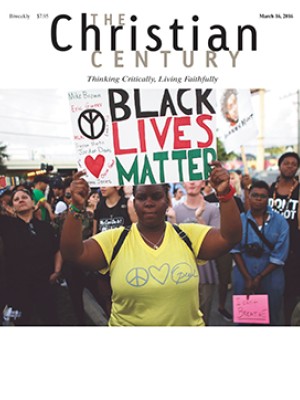Pope and patriarch enter 'shared labor'
After two years of secret talks aimed at healing ties broken during the Great Schism of 1054, Pope Francis and Patriarch Kirill, head of the Russian Orthodox Church, met in Cuba.
It was the first time in history that the leader of the Catholic Church has met with a Russian patriarch.
“It is with joy that we have met like brothers in the Christian faith,” the patriarch and pope wrote in a joint statement, “to discuss the mutual relations between the churches, the crucial problems of our faithful, and the outlook for the progress of human civilization.”
Kirill was in Cuba on an official visit and Francis was on his way to Mexico when the pair had a private talk for two hours on February 12 at Havana’s José Martí International Airport.
Cuba was also chosen as neutral ground. It is a long-standing ally of Russia, and both Russian leader Vladimir Putin and the Russian Orthodox Church, which generally supports Putin and his nationalist aims, are deeply suspicious of appearing to defer to the West.
Read our latest issue or browse back issues.
“By meeting far from the long-standing disputes of the ‘Old World,’ we experience with a particular sense of urgency the need for the shared labor of Catholics and Orthodox,” they wrote.
Pope Francis and Patriarch Kirill called for work together on global poverty, the sanctity of human life, and the persecution of Christians and the migration it has compelled. They mentioned particular concern for kidnapped Orthodox metropolitan Paul Yazigi and archbishop Yohanna Ibrahim of Aleppo, Syria, who have been captive since April 2013.
The metropolitan and archbishop are from two of the independent churches in Orthodox Christianity, which are largely based in Eastern Europe or the Middle East and are grouped by nationality, language, and cultural traditions as well as theology.
About two-thirds of people in the Orthodox tradition are Russian Orthodox, a church that often asserts its autonomy, though the ecumenical patriarch of Constantinople is the formal leader of Eastern Orthodoxy, the “first among equals.”
Pope Paul VI met with the patriarch of Constantinople, Athenagoras, in Jerusalem in 1964 in a historic first, and subsequent popes—including Francis—have met with Athenagoras’s successors.
In their joint statement, Francis and Kirill addressed the rift in Christian history, especially noting that their two churches have been “deprived of Communion in the Eucharist” for nearly a thousand years.
“We are pained by the loss of unity, the outcome of human weakness and of sin,” they wrote. “Mindful of the permanence of many obstacles, it is our hope that our meeting may contribute to the reestablishment of this unity willed by God, for which Christ prayed. . . . In a world which yearns not only for our words but also for tangible gestures, may this meeting be a sign of hope for all people of goodwill!”
At their meeting the pope and the patriarch affirmed “the foremost value of religious freedom” and expressed their concern about the places where there are restrictions on expressions of faith in public life.
The call to evangelism, however, excludes proselytizing members of each other’s traditions, they wrote.
“Interreligious dialogue is indispensable in our disturbing times,” Francis and Kirill wrote. “Differences in the understanding of religious truths must not impede people of different faiths to live in peace and harmony.”
They encouraged Catholic and Orthodox believers to refrain from participating in the conflict in Ukraine, where there have been tensions between the churches, as well as among Orthodox faithful.
The Catholic-Orthodox meeting in Havana took place just months before the expected first joint meeting of the various Orthodox churches in more than a thousand years. Differences between the Russian and other Orthodox leaders have complicated planning for the landmark gathering.
The Russian Orthodox Church is the largest member of the World Council of Churches, the ecumenical organization noted in a statement about the meeting in Havana.
Olav Fykse Tveit, WCC general secretary, wrote that the meeting was “a great step forward in healing the schism between Western and Eastern Christianity. The pope’s openness to dialogue with the Orthodox Church leaders—earlier with Ecumenical Patriarch Bartholomew and now with the spiritual leader of the Russian Orthodox Church—shows a growing commitment to unity among Christians, which in turn is a sign of hope for peace in our world.” —Religion News Service; the Christian Century staff
This article was edited on March 1, 2016.






